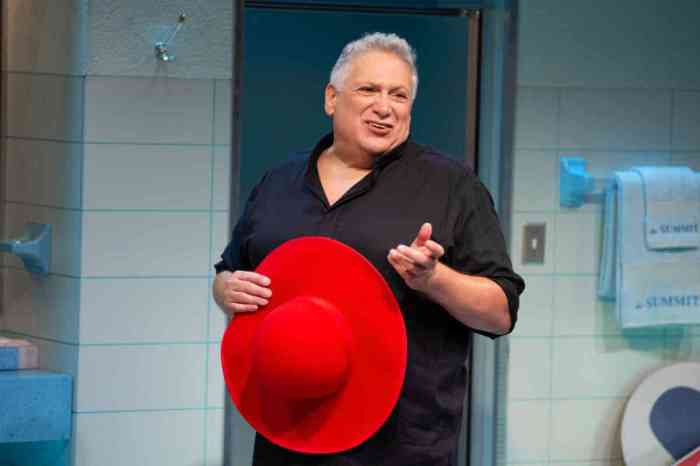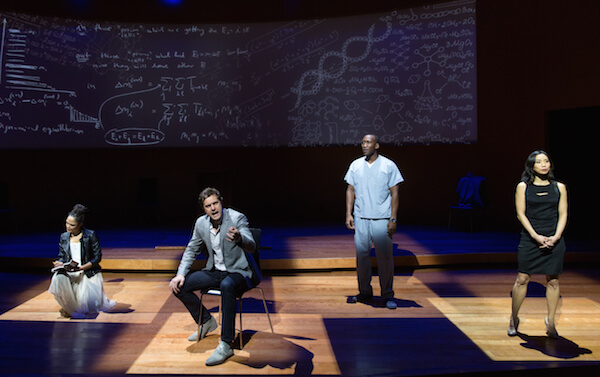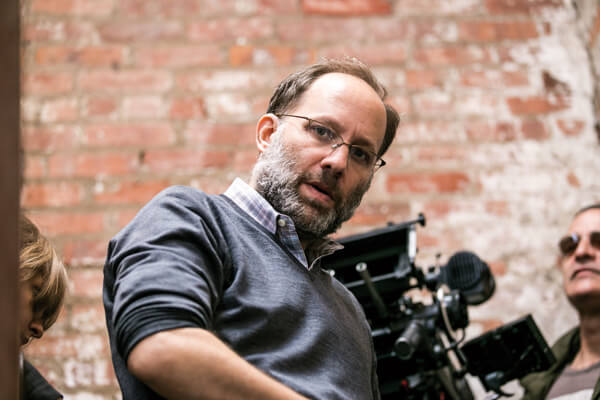Joshua Jackson and Alexander Siddig in Ruba Nadda’s “Inescapable.” | IFC FILMS
Canadian director Ruba Nadda has made three features. Her Syrian heritage is crucial to two of them, including her latest, “Inescapable.” It’s set there, though for obvious reasons it had to be shot elsewhere. (Thoroughly convincing production design helps South Africa pass for Syria.) Nadda seems to be working with one eye on the worldwide Arab diaspora and the other on the wider mainstream North American audience. Unfortunately, this results in major compromises.
For instance, most of the Syrians in “Inescapable” speak English, rather than Arabic, to each other. For the second time in a row, she’s cast Alexander Siddig, one of the few Arab actors with a substantial following in the US (due in part to his work on “Star Trek: Deep Space Nine”), but he plays opposite Marisa Tomei. The Italian-American actress plays a Syrian woman, a role in which she visibly struggles to seem credible. Rather than an Arab, she seems to be channeling Italian actresses like Sophia Loren.
“Inescapable” begins in January 2011 in Toronto. Syrian immigrant Abid (Siddig) works in a bank and lives a happy middle-class existence with his wife and two daughters, one of whom is touring Europe and Israel. Suddenly, he learns she’s disappeared in Damascus. He decides to search for her himself. Twenty-five years earlier, Abid had been an officer in the Syrian military police with a fiancée, Fatima (Tomei), but he suddenly emigrated to Canada for mysterious reasons.
A Damascus thriller is told, though often not in its native tongue
Upon his return to Syria, he is greeted by Fatima at the border and meets up with Canadian diplomat Paul Ridge (Joshua Jackson) and an old friend, Sayid (Oded Fehr). With their help, which comes with plenty of strings attached, he tries to track down his daughter.
As a screenwriter, Nadda is terribly clumsy. “Inescapable” seems simultaneously overloaded and prone to withholding. It’s full of complex backstory, yet most of it doesn’t emerge naturally from Abid’s interactions with Sayid and Fatima. Much of the time, she tells more than she shows. The true nature of Sayid and Abid’s friendship — the reasons for the tension between them, beneath a veneer of joie de vivre — is revealed through a piece of microfilm, not their interactions.
Abid’s concern for his daughter is the motor behind the entire narrative, so why does it so often play like a plot device? When the film finally reaches its narrative and emotional climax, it feels as though it should continue for another five minutes to let the mood fully sink in.
Nadda has made a thriller of sorts, yet the ratio of talk to action is about 20 to one. She’s said she intended the film as a tribute to her father. Siddig has a real charisma and toughness seldom seen from Arab men in Western cinema, when they’ve been depicted at all. His performance recalls Liam Neeson’s middle-aged reinvention as an action star. Nadda, however, isn’t really suited to this type of film. It plays as though it were made for the macho equivalent of the Lifetime Channel. The direction and editing of action scenes are inept and amateurish.
“Inescapable” isn’t really about the conflicts currently tearing up Syria. At most, it addresses their roots. Its narrative makes the casting of Israeli actor Oded Fehr as a Syrian bitterly ironic. And I’m not sure that a thriller is the best framework in which to explore Middle Eastern politics.
As critical as I’ve been of Kathryn Bigelow’s “Zero Dark Thirty,” at least Bigelow didn’t feel the need to leaven her hero’s obsessive nature with sentiment and then give short shrift to those emotions. “Inescapable” offers a respectful treatment of its Arab characters’ struggles, set at a central position rare in North American cinema, but it waters itself down in its effort to make them palatable to a non-Arab audience.
INESCAPABLE | Directed by Ruba Nadda | IFC Films | In English and Arabic with English subtitles | Opens Feb. 22 | IFC Center | 323 Sixth Ave. at W. Third St. | ifccenter.com

































